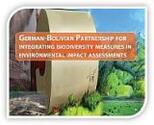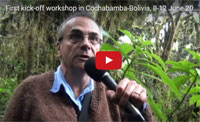First kick-off workshop in Cochabamba-Bolivia, 8-12 June 2015

The first workshop took place in Cochabamba-Bolivia and it was the official kick-off of the project where the intra-university cooperation agreement was signed. German and Bolivian partners participated in this first workshop.
One of the main objectives of the workshop was to establish the bilateral partnership allowing the team members getting to know each other and learn about the scientific background, research interests, overlaps and particularities in order to use synergies and facilitate effective collaboration on the project in the field of best practice for biodiversity conservation. Therefore, presentations were performed by both institutions (Universidad Católica Boliviana of Cochambamba (UCB) and ZEF to introduce their main objectives and characteristics.
Furthermore, thematic presentations were given by the Bolivian partners including the following topics (program attached):
- Bolivian Development policies and their possible environmental impacts” by M.Sc. Miguel Delgado. The presentation was about the legal framework that regulates the procedure of Environmental Impact Assessment that is conducted in Bolivia.
- “Bolivian Aquatic Ecosystems: state and conservation problems” by Dr. Paul van Damme. This was about the environmental impacts of development activities in aquatic ecosystems, with focus on the fishery sector.
- “PROAGRO-GIZ: Pedagogical basins and other projects from the German Cooperation in Bolivia” by Ing. Mario Veizaga. In this presentation the main observatory project of natural resourse use and conservation was described, which was established by the Bolivian government and GIZ, in two basins from Cochabamba.
The round of presentations ended with open discussions and a set of ideas for developing paths of collaboration within the context of this project. Additionally, plans for the second workshop to be held in Bonn were set and discussed. The last three days (June 10-June 12, 2015) of the workshop the team members went to an excursion planned by the Bolivian project partners.
EXCURSION - Bolivia
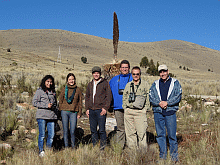
The trip destinations were:
(1) Cordillera del Tunari, where the team visited the Misicuni Dam in Cochabamba; (2) the Aiquile-Totora in Cochabamba valleys and finally (3) ecosystem gradients from Cochabamba to Santa Cruz passing by Totora and Comarapa.
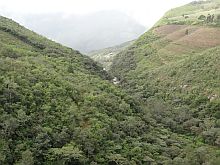
On June 11-12, the team visited different types of ecosystems from highland to lowland regions, passing through dry and cloud forests. The partners got familiarized with the main environmental peculiarities and specific potential impacts of certain projects that are located in different ecosystems, as could appreciate the challenges of accounting for biodiversity across varying ecological gradients and characteristics for impact assessment evaluation methods that this project intends to develop.
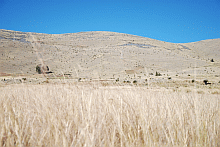
During this excursion, the partners went to observe the PROAGRO project site from the German Development Cooperation –GIZ which supports land restoration and local farmer agricultural production in highly degraded watersheds as consequence of several anthropogenic impacts. This visit was strategic since this project is considered to be a potential future cooperation partner with our project in the long term.
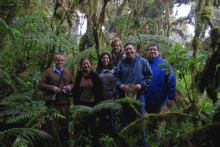
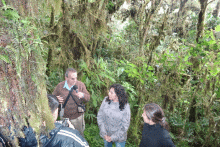
Photo 4 and 5. Group discussions during excursion through the lowlands of Cochabamba and Santa Cruz – Bolivia.
In the course of the field trip, the main characteristics of different ecosystems were discussed pointing out the role of climate, altitude, and ecological zonation that shape ecosystems exposure to impacts generated by human activities and that need to be assessed within environmental impact assessments. During the excursion, team members from both universities had the chance to discuss and analyse important factors, challenges and possible methods to evaluate the potential impact on biodiversity across ecosystems.
